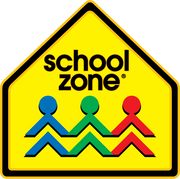Legendary actor, comedian, film director, and EGOT (Emmy, Grammy, Oscar, Tony) winner Mel Brooks, who was a drummer and singer in his teens, has said, “A lot of music is mathematics. It’s balance.” It also builds kids’ brain power! Just ask MIT.
Playing an instrument creates connections
Recently, Geoffrey James, contributing editor for Inc. magazine, wrote “Want Smarter Kids? Teaching Music, Not Coding, According to MIT.” He says, “the basic coding skills taught in K-12 bears no resemblance to how professional programmers produce code.” Referencing the “teach kids to code movement,” the article says a 2020 study done by MIT found that understanding computer code is “its own thing,” adding that “It’s not the same as language, and it’s not the same as math and logic.”
Citing a January 2021 study “conducted at the University of Zurich and published in The Journal of Neuroscience,” the Inc. article says, “By contrast, what actually does increase other skills and brain power is teaching kids to play a musical instrument.”
The study involved scanning the brains of musicians and non-musicians, which revealed that “musicians’ brains were vastly more structurally and functionally connected” than those of non-musicians, especially in particular parts of the brain. And James quotes professor and study co-author Simon Leipold as saying, “the earlier the musicians had started with musical practice, the stronger these connectivities.”
Go practice, then use your words
Similarly, In 2018 the MIT News Services Office published “How Music Lessons Can Improve Language Skills,” by Anne Tufton. The subtitle was “Study Links Piano Education with Better Word Discrimination by Kindergartners,” and the research findings suggested that the ability to distinguish different pitches, translates into an “improvement in discrimination between spoken words.” Other research has also shown that music stimulates both the left and right sides of the brain and enhances math skills.
If that’s not persuasive enough, iFamilyKC, in “8 Benefits of Playing Piano for Kids (& When to Start),” write that “They will achieve valuable skills such as self-discipline, mental concentration, a sense of timing, the ability to hold up under stress, memory skills and many others that will benefit them throughout their lives.”
This should be music to the ears of anyone who questioned the value of early piano instruction or has a child challenging music lessons and practice time.

Lots of skills benefit all at once from making music
In “The Importance of Music in Early Childhood Development,” Tanja Mcilroy, writing for Empowered Parents, says that “Play is important and music is one of the best kinds of play to engage in.” She notes that it benefits all these developmental areas: vocabulary, auditory perception, sound patterns, motor skills, self-expression, memory skills, and general well-being.
She also writes that “Music is not just about singing.” It can include rhyming songs, listening to music, playing with instruments, “body percussion, poems, dancing, musical games and stories with music.

Music is a great way for parents to share in big joy and memory-making. The "Hug Bug" MP3 download is a great start. Inspired by the whimsical story with the same name from the Start to Read! Series, both song and book playfully teach colors and “describing words” (adjectives) by comparison to the bug world. The song was written by multiplatinum-selling artist Brian Vander Ark of The Verve Pipe and performed in collaboration with Evie Vander Ark.


Brian Vander Ark also wrote the "ABC Song." Learning the alphabet has never been so sweet. Toddlers, preschoolers, and kindergartners will love shouting out “H, I, J as in jump for joy.” And they will definitely remember: “P starts the really popular words like puppy or pizza, I’m pretty pleased to meet ya.” Get ready for the giggles on “U is for underwear.” Join them in anticipating the rhymes, dancing around, and enthusiastically singing along to this very, very memorable alphabet song.
Schedule some “stage time” to showcase your kids’ music talents and watch their school skills grow too.












